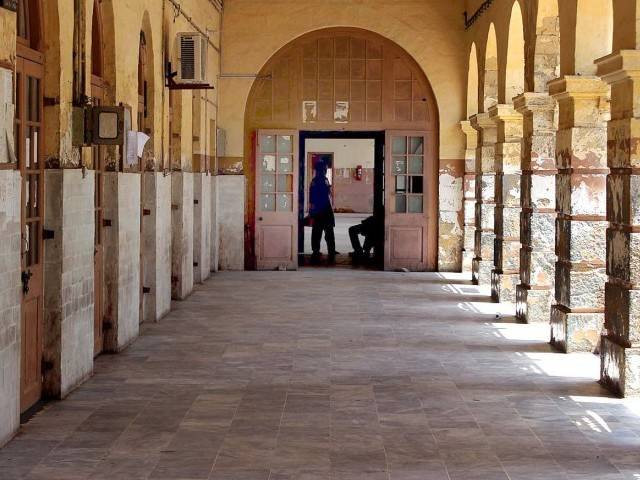Bars for ‘meaningful consultation’ for judges’ appointment
Superior bars to present proposal to amend JCP rule to top judge

Superior bars have decided to present their proposals to Chief Justice of Pakistan Gulzar Ahmed for amending the Judicial Commission of Pakistan (JCP) rules to ensure that bars are part of “a meaningful consultation” for appointments of judges to the superior courts.
This was decided in a meeting of a committee comprising one member each of the Pakistan Bar Council (PBC), the Punjab Bar Council, the Sindh Bar Council, the Khyber-Pakhtunkhwa Bar Council, the Balochistan Bar Council and the Islamabad Bar Council.
The JCP is a commission responsible for appointment of judges to the Supreme Court and five high courts of the country. The chief justice of Pakistan heads the JCP as its chairman.
It also comprises four senior most judges of the Supreme Court, a former judge, the federal law minister, the attorney-general for Pakistan and a senior advocate nominated by the PBC.
The PBC representative in the JCP – Akhtar Hussain – is the chairman of superior bars committee that was reviewing the JCP rules. According to sources, the committee will now send the proposed draft for amendments in the JCP rules to JCP chairman – CJ Gulzar Ahmed.
The committee has proposed addition of a new clause in the JCP rules for “meaningful consultation” with concerned bar representative before initiation or sending names to the commission for appointment of a judge. The consultation will be made by respective chief justice.
It is also proposed that bars representatives in the JCP should have the right to recommend any name for appointment of a judge. Bars representatives have also suggested another new clause for permitting the commission to summon nominees for personal hearing at a JCP meeting.
The committee has also suggested amendments to the JCP rules 6 and 8 to end discretionary powers of the JCP chairman – the chief justice of Pakistan – in the process of judges’ appointments.
In 2013, the PBC had also proposed a number of amendments in the JCP rules, calling for transferring discretionary powers on appointment of superior court judges from the chairman to the commission.
Even former CJs had formed special committees to consider proposed amendments but no result came out. A member of the bars committee – Muneer Kakar – revealed to The Express Tribune that lawyers are disappointed over the procedure of judges’ appointment for the last ten years.
He said the committee decided that if the commission did not amend the JCP rules then the bar representatives would not attend any commission meeting.
The source said consultation regarding appointment of 20 Lahore High Court (LHC) judges is still under way but consensus has yet to evolve on proposed nominees.
Talking with reference to the LHC judges’ appointment, PBC Vice Chairman Abid Saqi said the JCP should not become judges’ consortium.
He demanded that the superior judiciary should consider lawyers belonging to the minority community for the vacant posts. He said proper representation of women lawyers should be given in the bench. No woman judge has been elevated so far in the apex court in the last 70 years.
The PBC vice chairman urged the parliamentary committee on judges appointment to make its role more effective in the judges’ appointment process. He criticized the Supreme Court’s Munir Bhatti case judgment which made the role of the committee more ineffective.
Saqi said “politically opinionated” lawyers should be considered for the appointment of superior courts’ judges. He contended that there is no neutral judge.
He urged the parliamentary committee to prepare a questionnaire to gauge the “intellectual commitment” of the nominee with the Constitution, on which he will take oath as a new judge, adding that the same practice is happening all over the world during the process of the judges’ appointment.
He said “democratically sensitive” judges should be appointed in the superior courts.
Senior lawyers also urged the committee to ask nominees during interviews how much they are concerned about democratic institutions. In November 2019, the committee amended its rules wherein it was stated that interviews of nominees would be conducted before their approval.
Lawyer Asad Rahim Khan said, "We must remember that our judiciary self regulates and appoints judges owing to a history of executive abuse, when judges were whimsically removed by military rulers, and just as whimsically appointed by civilian premiers purely on basis of political affiliation."
He said there is no harm in our parliamentarians playing a more proactive role in scrutinizing judicial appointments, as long as it is in the light of our current constitutional arrangement.
“Judicial candidates being interviewed by the parliamentary committee members that may lack the requisite knowledge of the law, judicial procedure, or recent precedent would not be a step in the right direction," he said.



















COMMENTS
Comments are moderated and generally will be posted if they are on-topic and not abusive.
For more information, please see our Comments FAQ